ABOUT LRDC
The Lucitopia Rural Design Challenge (LRDC) gathers outstanding young design teams from around the globe, focusing on specific Chinese rural regions, to explore and research issues and needs from the perspective of community, environment, culture and economy. The design process is guided by experienced international tutors, through advanced design methodology, professional know-how and technology. The teams compete to provide the most feasible, innovative and sustainable solutions, leading towards rural regeneration and redevelopment in Chinese rural areas. The first LRDC was held successfully in Zixi Qingliangshan National Forest Park in May 2018, which marked, at the same time, the beginning of the Lucitopia development project.
FOCUS OF THE LRDC 2019
The remote and unspoilt character of Lucitopia Town, situated in the midst of the primeval Qingliangshan National Forest Park with its several pastoral villages, provides an excellent basis for the exploration, design and development of ecologically beneficial and sustainable solutions around a rural community, which seeks to harness, develop and promote the best of local cultural tradition and natural produce, whilst enhancing quality of life through the application of advanced expertise, methodology and technology. Emphasis is placed on such Sustainable Development Goals as efficient and renewable energy, biodiversity, responsible production and consumption, wellbeing, healthy foods, environmental protection and education. All this, together with the natural beauty, flora and fauna of the area, could make Lucitopia an engaging community for both residents and visitors.
From a wider perspective, the Lucitopia project aims to not only create an innovative, ecological town, but also to offer a compelling solution for the revitalisation of the rural community, which not only stems the tide of rural depopulation, but also brings ecologically aware visitors into the area.
In last year’s LRDC, the design participants had a wide remit to develop and revitalise the Qingliangshan area on the basis of a balanced unification of Ecology, Production and Living. This year once again, the LRDC aims to use the immense potential of Lucitopia’s unspoiled natural resources, human talent and inventiveness, and the latest technology together with traditional know-how to develop new forms of rural creative industry.
The focus of the LRDC 2019 will be around the innovative use of natural and waste materials, derelict areas and spaces, the shaping of the ecoscape, renewable energy and wellness, taking ‘edibles’ as a main starting point, to provide integrated design solutions. These solutions can address immediate local needs but also much broader issues around the design of rural – urban interaction within a social, economic and cultural context. The process of sourcing, developing and testing is in Lucitopia, but the aim is to replicate and export the results to a wider region and more rural communities.
In line with Lucitopia’s development strategy, this year’s design solution proposals will also be evaluated for possible further participation in the incubator program in Qingliangshan.
ABOUT THE AREA
As in 2018, the 2019 edition of the Lucitopia Rural Design Challenge (LRDC) will focus on the area of Qingliangshan National Forest Park and Zhuxi Tree Farm in Zixi County, around a two-hour drive from NanCheng HighSpeed Railway station in Jiangxi province. This relatively remote location has brought some advantages to the region: most significantly, it has remained largely undeveloped, and thus maintained its natural beauty and unspoiled character.
Qingliangshan National Forest Park was established as Zhuxi Agriculture & Forest Farm in 1957 and was subsequently incorporated in the Jiangxi Production and Construction Corps, Fujian Military Region. Between 1964 and 1971 when the Corps was abolished, some 300 “educated youth” (or zhiqing, urban youth, who left the city to support agricultural production in rural areas) worked on the Farm. The Farm assumed the title of Zhuxi Tree Farm in 1973 and has kept this name until now. In November 2006, the Tree Farm was granted the additional title of “Qingliangshan National Forest Park” by the State Forestry Administration (Restructured as State Forestry and Grassland Administration in 2018). Throughout the Tree Farm, architectural features can still be seen from the time of the “educated youth”, such as the Tree Farm workers’ camps, former clinic, auditorium and cinema.
In addition to the administrative buildings, the Tree Farm covers an area which includes several villages. Like many such rural areas in China, and indeed, worldwide, Zixi county has suffered from family fragmentation and depopulation as younger residents left their homes in search of work in larger urban centres. The population, particularly in the villages, is now composed mainly of older people and some children. The inhabitants of the area also comprise two different groups: the ‘’originals” with a long local tradition and the “immigrants’, who were moved to the area from Qiandao Lake, Chun’an County in Zhejiang Province in 1959 due to the construction of Xin’an jiang reservoir. Though both groups of inhabitants are visually strikingly different in their architectural and living styles, they cohabit in a perfectly friendly and supportive way, and are equally affected by the population drain.
On an economic level, Zixi County has invested in several ecological or cultural tourism projects. The County is famous for its bakery and confectionary school, which send high quality bread and highly qualified bakers throughout China; most of the people who left Qingliangshan are mainly engaged in the work related to the bread industry. The area also produces high quality tea. In addition, the village areas are renowned for a plentiful supply of top quality bamboo, all kinds of organic vegetables and fruit, high quality spring water and delicious honey.
The Lucitopia development project officially started in May 2018 with the first edition of the LRDC. Taking the “Creative Industry Eco Town” as the basic positioning, Lucitopia Town aims to create a town that incorporates Creative Industries, “Livable Ecology”, Cultural Tourism, Leisure and Wellness, and Community Services, as in its “One Leaf and Five veins” ideology. To date, the town has established a Creative Centre and its first camp, providing such facilities and services as office space, meeting rooms, accommodation, food, leisure and entertainment. In addition, a series of events and activities will take place around town life and the creation of new industry sectors.
SCHEDULE
· March – May 2019: Advance research and design process
In this phase, the Challenge will open online research channels. The participating teams are able to obtain relevant information concerning the target area and start the advance research and design process. As they develop their ideas, teams can ask for more targeted information and answers to their questions regarding the Challenge. In addition, the mentors will also provide teams with guidance in this process.
· 20 May – 28 May 2019: The Challenge and the related activities
05.20 Local visits in Qingliangshan
05.21 Official opening ceremony, introductory presentations, design workshop
05.22-24 Design workshops, concept development, prototyping
05.25 Evaluation, jury, awards, closing ceremony
05.26 Bamboo industry visit and workshops in Zixi County
05.27 Tea plantation visit and workshops in Zixi County
05.28 Bakery/School visit and workshops in Zixi County
· June – August 2019: The Incubator Program
All the resulting proposals from the Challenge will also be evaluated for the Incubator Program, and selected team(s) will have opportunity to return to Qingliangshan to further develop and implement their project(s).
(More information on the advance research plan, the Challenge schedule and the incubation plan will be published later)
CHALLENGE PEOPLE
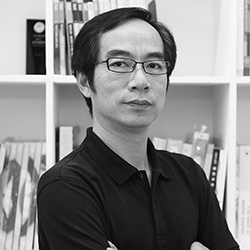
Gilian WANG
Executive Director of Zixi Qingliangshan Lucitopia Town Dev. Co., Ltd.

Zhong Zheming
Executive Director of Mexdia, designer, media artist

Li Xiuxiang
Professor, Doctoral Mentor, Director of Trade and Environmental Research Centre, Jiangxi University of Finance and Economics

Qin Jian
Professor of Art College of Xiamen University, Doctoral Mentor of Macau University of science and technology, Curator

June Yu
Artistic researcher, Neuhausler

Andrew Bullen
Founder, Creative Cooperative
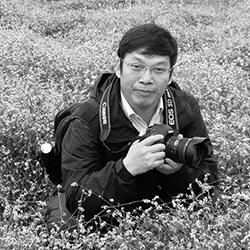
Dai Nianhua
Deputy Director & Researcher, Institute of Biological Resources, Jiangxi Academy of Sciences

Ma Wen
Director of Digital Media Art Department, Art College of Xiamen University, Curator, Artist & Architect

Wang Yao
Associate Professor of Environmental Design Department, Xiamen University of Technology, Ph.D Candidate of Graduate Institute of Building & Planning of Taiwan University, Senior Landscape designer

Yu Benfeng
School of Hydraulic and Ecological Engineering, Nanchang Institute of Technology, Senior Engineer, Expert of National Forestry and Technology
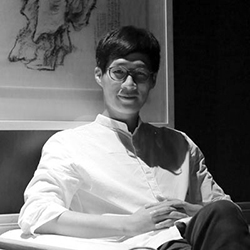
Chen Wei
Co-founder & Director of C-PLATFORM, Independent researcher, Curator
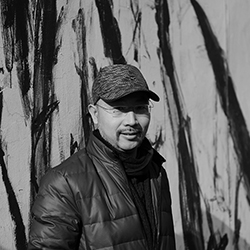
Gao Yang
Associate Professor & Ph.D. of College of City Design, Director of Housing Product Design Department, Central Academy of Fine Arts, Architect

Nick Renshaw
Ph.D, Design and Communication Art College, University of Sunderland UK, Researcher, Artist

Yasmine Ostendorf
Independent researcher, Curator

Janine Huizenga
Founder Creative Cooperative (NL)/ Head IMD, Royal Academy of Art, Netherlands

Huang Zhi
Assistant professor of Environmental Art, Department of Design, Art College of Xiamen University, leader of IUG Innovation Center (Xiamen)
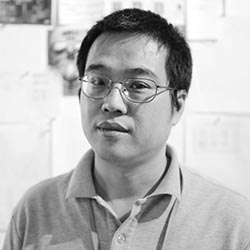
Pan Mingquan
Art Director of Xiamen Lucitopia Co., Ltd., Artist
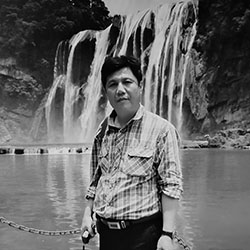
Yin Guosheng
Former Deputy Head of Jiangxi Geological survey research institute, Senior Engineer
PARTICIPATING INSTITUTIONS
Strate School of Design Paris
Association for Smart Learning Ecosystem and Regional Development (ASLERD), Rome
Köln International School of Design (KISD)
Digital Media Art, Art College of Xiamen University
Strate School of Design Singapore
London College of Communication, University of the Arts London
Royal Academy of Art The Hague (KABA)
Universities of Saint Petersburg
PRACTICAL INFO
Travel
The Challenge organisation will arrange all the transportation needed in the travel to Qingliangshan, including the international flights between the designated countries or regions and the transfer city (Xiamen, China), in addition to the high-speed train to Nancheng County and the coach to Qingliangshan. Accommodation in the transfer city (Xiamen, China) will also be arranged as needed.
(More specific travel plans will be made and confirmed with teams)
Accommodation
All the participants will be accommodated in the ‘Mix Box Camp’ of Lucitopia Town during the Challenge. The Camp is designed and built entirely based on recycled shipping containers. The camp comprises living units, a canteen, convenience store, laundry and reception center. The fully equipped living unit has a simple and comfortable design, including the bed, wardrobe, desk, chair, toilet and shower. The reception will also provide basic service.
Food
During the Challenge, participants will eat in the canteen of the ‘Mix Box Camp’. The canteen will offer various kind of delicious Chinese food for the three meals.
Work
The Creative Center adjacent to the ‘Mix Box Camp’ will be used as the main venue for the work and various activities of the Challenge. The Center has been re-designed and transformed from a former garment factory. The building contains a large multi-purpose space, office spaces, a maker space with 3D printer, laser engraving machine, photocopier, various tools, and a bar offering coffee, drinks and special snacks.
Services
The Challenge organization will provide teams with a guide and interpreter (Chinese ←→ English) during the Challenge and all travel in China. The required technical support will also be provided.











